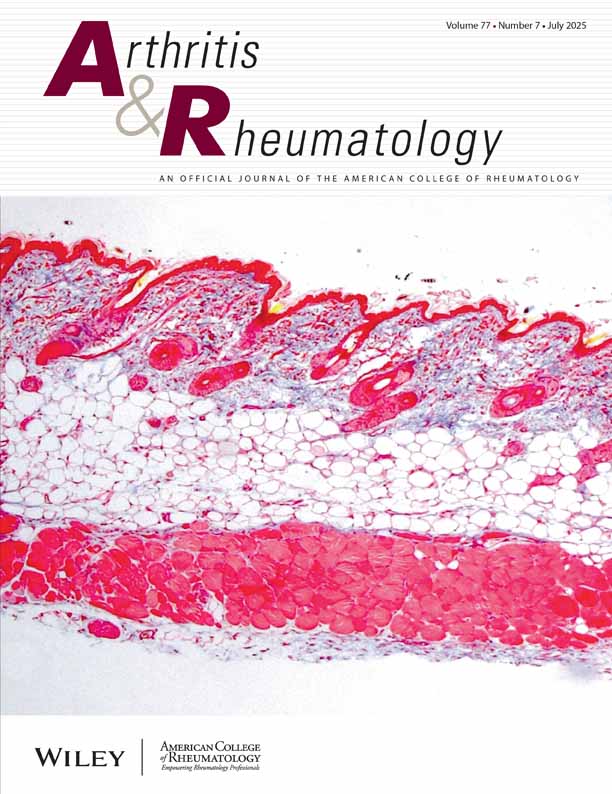Expression of bone morphogenetic protein 6 in healthy and osteoarthritic human articular chondrocytes and stimulation of matrix synthesis in vitro
Abstract
Objective
To elucidate the role of bone morphogenetic protein 6 (BMP-6) in human articular cartilage, we investigated whether BMP-6 is expressed in adult human articular chondrocytes and analyzed the potential stimulatory effects of BMP-6 on these cells. In addition, we investigated whether osteoarthritic (OA) and normal cartilage chondrocytes behave differently.
Methods
Endogenous expression of the BMP-6 gene was examined by reverse transcription–polymerase chain reaction. BMP-6 protein was detected by Western immunoblotting. Chondrocytes were grown as monolayer cultures for 7 days in a chemically defined serum-free medium, in the absence or presence of recombinant BMP-6. Proteoglycan (PG) synthesis was measured by 35S-sulfate incorporation into newly synthesized macromolecules. Cell proliferation was assessed by 3H-thymidine incorporation.
Results
BMP-6 was expressed in both healthy and OA chondrocytes at the messenger RNA and protein levels. Total PG synthesis was significantly increased after BMP-6 stimulation of healthy (mean ± SEM 191 ± 11%; P < 0.001) and OA (150 ± 25%; P < 0.03) chondrocyte cultures. A direct comparison between healthy and OA samples revealed no significant difference. The proliferation rates of normal and OA chondrocytes were not affected by BMP-6 treatment.
Conclusion
BMP-6 is endogenously expressed in chondrocytes obtained from OA and normal adult human articular cartilage. Furthermore, BMP-6 has the potential to stimulate total PG synthesis in human articular chondrocytes derived from normal as well as OA joints. We conclude that the presence of BMP-6 in adult human articular cartilage indicates a functional role for this growth factor in the maintenance of joint integrity.




